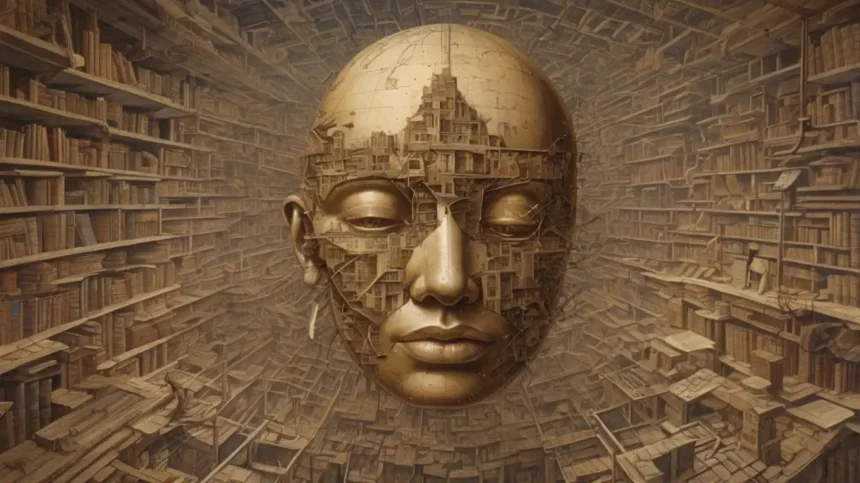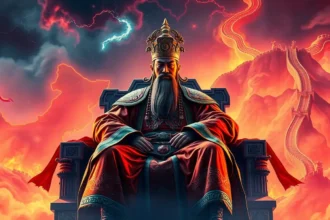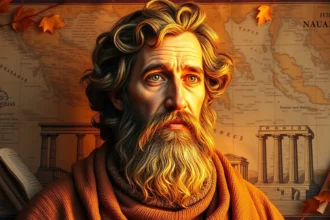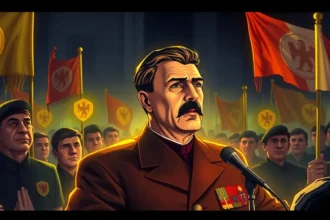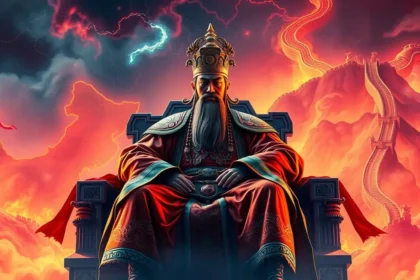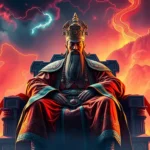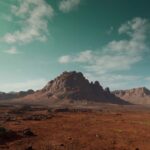Throughout history, knowledge has been a cornerstone of human advancement. From ancient civilizations that sought wisdom in the cosmos to modern societies dominated by standardized tests and certifications, the way we approach knowledge has drastically shifted. What was once a means of liberation and discovery has been reduced to fragmented, utilitarian pieces—questions devoid of context, essence, and purpose. This transformation has far-reaching consequences for humanity’s intellectual growth, creativity, and ability to navigate life’s complexities.
True knowledge is not in memorizing facts but in understanding the essence of life and unleashing the boundless creativity within.
FebruaryToEnd.com
By tracing examples from history and examining global trends, we can understand how this shift impacts humanity and the world today.
The Evolution of Knowledge Across Eras
In ancient civilizations, knowledge was not merely an accumulation of facts but a medium to understand the self, the universe, and the intricate relationship between the two. Take the ancient Indian tradition of gurukul, where students lived with their teachers and learned through experience, observation, and dialogue. The curriculum included subjects as diverse as astronomy, medicine, ethics, and spiritual practices. This holistic approach sought to create well-rounded individuals capable of independent thought.
The Greeks, too, revered knowledge. Socrates, for instance, emphasized the importance of questioning and introspection. The Socratic method wasn’t about seeking definite answers but about provoking deeper understanding. Plato, his student, envisioned a society led by philosopher-kings—individuals trained to think beyond immediate concerns and toward the greater good.
This approach wasn’t unique to the East or the West. In China, Confucian teachings emphasized the moral purpose of education, while ancient Egyptian learning combined spiritual and practical wisdom. However, the Renaissance in Europe marked a unique period where knowledge became a celebration of human potential. Scientists, artists, and philosophers like Galileo, da Vinci, and Copernicus broke free from rigid dogmas to redefine humanity’s understanding of the cosmos and itself.
But as societies grew larger and more industrialized, the purpose of knowledge began to shift. Instead of seeking truth and liberation, education became a tool for economic and political control.
The Industrial Revolution: From Thinkers to Workers
The Industrial Revolution of the 18th and 19th centuries profoundly reshaped human life. Factories needed disciplined, efficient workers, and education systems adapted to meet this demand. The Prussian education model, developed in the early 19th century, epitomized this shift. Its rigid structure—divided into age-based classes, standardized testing, and uniform curriculums—was designed to produce obedient citizens and workers.
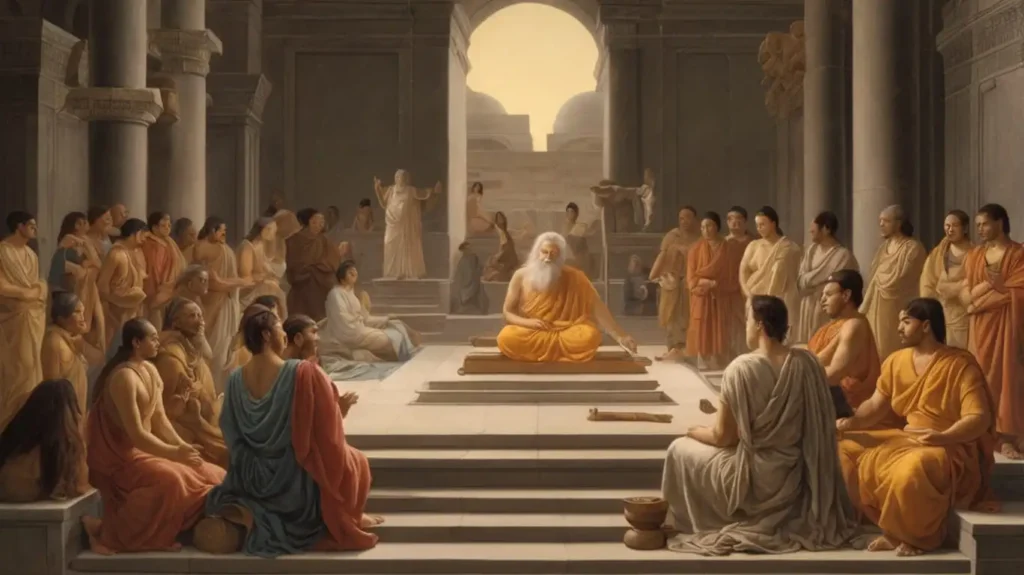
Horace Mann brought this model to the United States, and it spread globally, laying the foundation for modern education systems. The focus shifted from fostering curiosity to preparing individuals for predefined roles in an industrial economy. Creativity and critical thinking took a backseat to conformity and memorization.
This transformation wasn’t limited to industrialized nations. Colonial powers used education as a tool for subjugation. In British-ruled India, for example, the indigenous gurukul system was dismantled in favor of English-medium schools. Thomas Babington Macaulay’s infamous 1835 minute on Indian education aimed to create “a class of persons, Indian in blood and color, but English in taste, in opinions, in morals, and in intellect.” This system produced clerks and bureaucrats for the British administration but stifled creativity and critical thinking.
The global shift toward mechanized learning planted the seeds for many of the challenges we face today.
The Modern Knowledge Economy: Commodification and Fragmentation
In today’s world, knowledge has been commodified to an unprecedented degree. Universities, certifications, and online courses have become industries in their own right, generating billions of dollars annually. The focus is not on understanding or creativity but on acquiring credentials.
This commodification extends to the most basic aspects of life. For example:
- Breathing Techniques: Practices like yoga and meditation, which were once intrinsic to cultures, are now commercialized as expensive workshops.
- Digital Literacy: Instead of intuitive exploration, people are taught to navigate apps like Instagram or TikTok through tutorials and certifications.
- Parenting: Raising a child, an instinctive act, has become a subject of endless books, blogs, and courses.
Even professional fields are not immune. Routine tasks like filing taxes or completing forms are turned into complex processes requiring specialized knowledge. This deliberate complexity fuels an economy of dependence, where individuals must pay for guidance to perform basic functions.
The Scientific Perspective: Innovation at a Standstill
Science, historically a field driven by curiosity and wonder, is also suffering under this fragmented approach. Research is increasingly constrained by funding, bureaucracy, and the pressure to publish. Instead of exploring bold ideas, scientists are incentivized to produce incremental, “safe” advancements that align with institutional priorities.
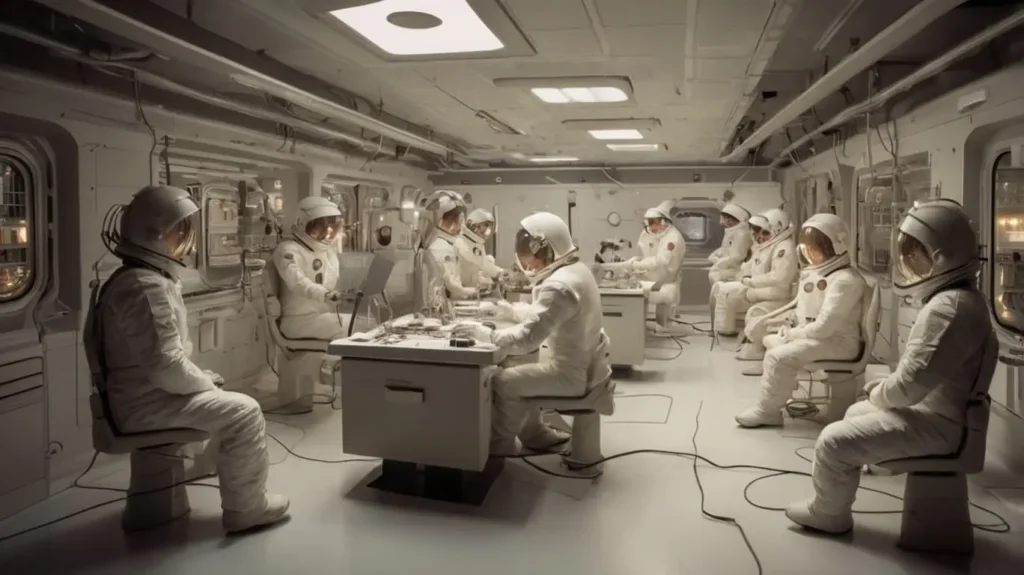
For instance, consider the stagnation in space exploration. The 1960s saw groundbreaking achievements like the moon landing—a testament to human ingenuity and ambition. However, the decades since have seen fewer revolutionary advancements in space science, as funding and vision have shifted toward immediate, utilitarian concerns.
The rise of artificial intelligence (AI) further complicates this picture. While AI has immense potential to accelerate discovery, it also risks becoming a crutch. Over-reliance on algorithms for research and problem-solving may erode humanity’s capacity for independent thought. Instead of using AI as a tool to augment creativity, we are increasingly outsourcing thinking itself.
The Impact on Humanity: Creativity and Intuition Eclipsed
The consequences of this approach are visible across all facets of life. Education systems, focused on exams and grades, fail to nurture creativity. Workplaces, structured around efficiency and hierarchy, leave little room for innovation. Even personal lives are affected, as individuals become more dependent on external systems for guidance.
When systems stifle curiosity, humanity loses its spark of innovation.
FebruaryToEnd.com
For example:
- Creativity in Decline: Children, naturally brimming with curiosity, are taught to conform to rigid academic standards. Art, music, and play—essential for cognitive and emotional development—are often sidelined.
- Overthinking Basic Acts: Practices like walking, breathing, and even sleeping are over-analyzed and marketed as skills to be mastered. This over-complication creates anxiety rather than empowerment.
- Dependency on Systems: From apps that track daily habits to courses on life skills, humanity is becoming increasingly reliant on structured systems, losing touch with its innate capabilities.
Lessons from History: The Renaissance and Beyond
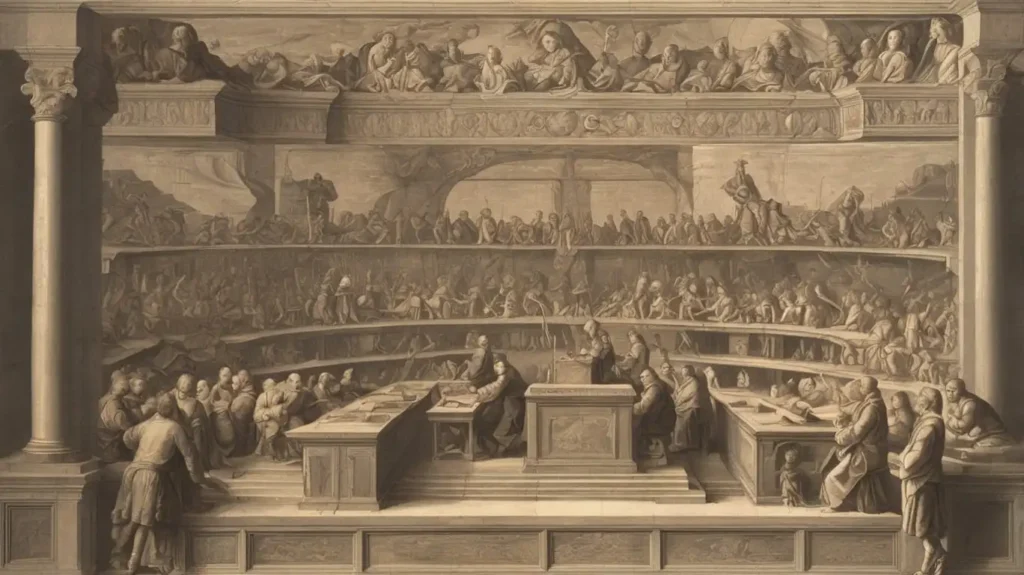
To reclaim the essence of knowledge, we can draw inspiration from periods of human history that celebrated creativity and interdisciplinary thinking. The Renaissance, for instance, was a time when boundaries between science, art, and philosophy blurred. Figures like Leonardo da Vinci exemplified this spirit, excelling as an artist, scientist, and engineer.
Similarly, the Enlightenment era emphasized reason, critical thinking, and the power of the individual to shape society. Thinkers like Immanuel Kant and Jean-Jacques Rousseau challenged traditional hierarchies, advocating for education that empowered individuals to think freely.
These historical periods remind us that progress requires a balance between structure and freedom, between specialization and holistic understanding.
Reimagining Knowledge for the Future
To address the challenges posed by fragmented and commodified knowledge, humanity must rethink its approach. Here’s how:
- Revamp Education: Shift from rote learning to inquiry-based models that encourage curiosity and exploration. Finland’s education system, which emphasizes creativity and student-driven learning, offers a compelling example.
- Simplify Life Skills: Reconnect individuals with their innate abilities by demystifying basic acts like breathing, walking, and communicating.
- Foster Creativity: Create environments where innovation is valued over conformity. Workplaces and schools must prioritize imagination and problem-solving.
- Use Technology Wisely: AI and other tools should augment human potential, not replace it. Collaborative approaches, where humans and machines work together, can lead to breakthroughs.
- Promote Interdisciplinary Thinking: Encourage cross-pollination of ideas by breaking down silos between disciplines.
Final Thoughts: Rediscovering Humanity’s Potential
Knowledge, at its core, is about liberation, discovery, and the joy of understanding. By reducing it to fragmented questions and commodified systems, we are losing sight of its true essence.
Humanity stands at a crossroads. Will we continue down a path of mechanized learning and dependency, or will we reclaim the spirit of curiosity and creativity that defines us? The choice is ours. By embracing holistic approaches, fostering innovation, and rediscovering the joy of exploration, we can create a future where knowledge serves as a beacon of hope, guiding humanity toward its boundless potential.
This is not just a call to action—it is a call to imagine a world where everything is possible.
Additional Resources
Education and Industrialization – Explore how education systems evolved during the Industrial Revolution to prioritize efficiency over creativity.
Visit: Smithsonian Education and History
Colonial Education in India – Learn how Macaulay’s reforms transformed India’s education system and its long-term impacts.
Read: British Library – Macaulay’s Minute
The Decline of Creativity in Schools – Understand why creativity is diminishing in modern education systems.
Visit: Scientific American – Creativity in Crisis
Renaissance Innovations and Human Potential – Discover how Renaissance thinkers combined science, art, and philosophy to drive progress.
Read: History.com – The Renaissance
AI’s Role in Creativity and Research – Examine how AI influences human innovation and the balance between dependency and augmentation.
Visit: MIT Technology Review – AI and Innovation
Simplifying Life Skills – Insights into how ancient, intuitive practices have been commodified in modern society.
Read: The Guardian – Yoga and Mindfulness
Future of Education Models – Explore alternative systems like Finland’s that emphasize creativity and holistic learning.
Visit: World Economic Forum – The Future of Education
Human Creativity in the Digital Age – Learn how interdisciplinary thinking can unlock humanity’s true potential.
Read: Brookings Institution – The Human Edge
These resources provide a comprehensive view of the historical, scientific, and cultural dimensions of humanity’s evolving relationship with knowledge.
Must Read : H0w Quantum Cryptography Could Revolutionize Cybersecurity


